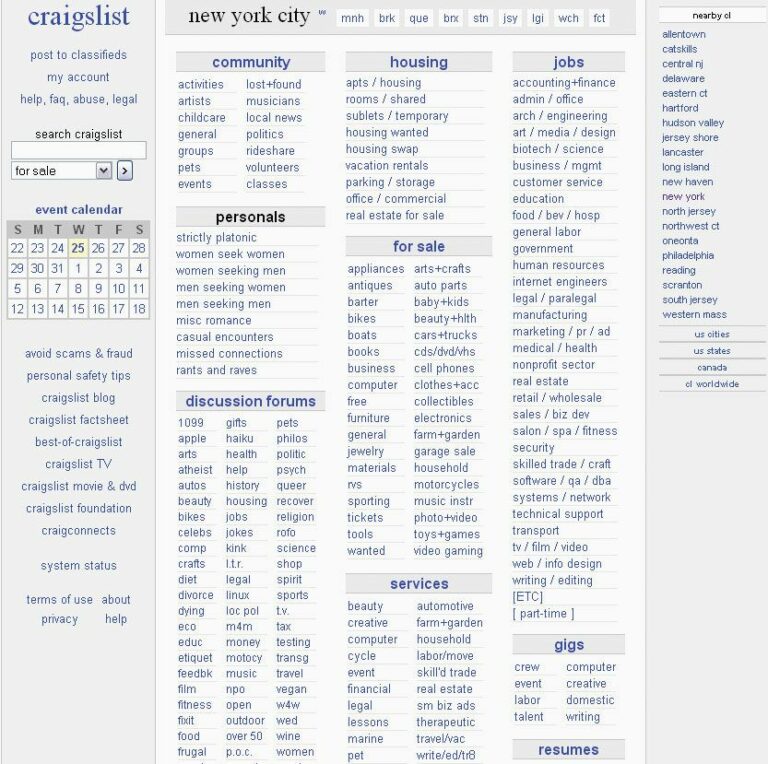Dump Truck Value: A Comprehensive Guide to Maximizing Your Investment
Dump Truck Value: A Comprehensive Guide to Maximizing Your Investment cars.truckstrend.com
In the robust world of construction, mining, waste management, and agriculture, dump trucks are the unsung heroes, tirelessly hauling tons of material day in and day out. For businesses operating in these sectors, a dump truck is far more than just a piece of machinery; it’s a significant capital investment and a cornerstone of operational efficiency. Understanding "Dump Truck Value" goes beyond its initial purchase price; it encompasses its long-term operational costs, productivity, reliability, safety, and eventual resale potential. True value is derived from how effectively a dump truck contributes to your bottom line, project timelines, and overall business sustainability. This comprehensive guide will delve into the multifaceted nature of dump truck value, offering insights and actionable advice to help you make informed decisions and maximize your investment.
Dump Truck Value: A Comprehensive Guide to Maximizing Your Investment
Understanding the Components of Dump Truck Value
To truly grasp the concept of dump truck value, it’s essential to break it down into its core components. Each element plays a crucial role in determining the overall worth and profitability of this vital asset.
- Initial Purchase Price: This is the most obvious component. It varies significantly based on whether the truck is new or used, its brand, model, specifications (engine size, transmission, body type), and any additional features. While a lower initial price might seem attractive, it’s critical to weigh it against potential long-term costs.
- Operational Costs: Often underestimated, these are the recurring expenses that accumulate over the truck’s lifespan. They include:
- Fuel Efficiency: A major cost driver, especially for large, powerful engines.
- Maintenance & Repairs: Both preventative (scheduled servicing, oil changes, filter replacements) and reactive (unexpected breakdowns, component failures).
- Tires: A significant ongoing expense due to wear and tear from heavy loads and challenging terrains.
- Labor: Operator wages and benefits.
- Insurance & Licensing: Mandatory costs that vary by region and truck type.

- Productivity & Efficiency: This refers to the truck’s ability to perform its tasks effectively and quickly.

- Payload Capacity: How much material it can haul per trip.
- Cycle Times: How quickly it can load, transport, and dump material.
- Uptime: The percentage of time the truck is operational, not undergoing repairs or maintenance.
- Technological Integration: Features like telematics, GPS, and automated systems can significantly boost efficiency.

- Reliability & Durability: A reliable truck minimizes downtime, which directly impacts project schedules and profitability. Durability refers to its ability to withstand harsh operating conditions and a long service life, reducing the need for premature replacement.
- Resale Value/Depreciation: Like any asset, dump trucks depreciate over time. However, some brands and models hold their value better than others, particularly those with a reputation for durability and consistent maintenance. A higher resale value contributes significantly to the overall value proposition.
- Safety Features: Modern dump trucks come equipped with advanced safety features (e.g., backup cameras, stability control, blind-spot monitoring). These not only protect operators and others on the job site but can also reduce insurance premiums and potential liability costs.
Factors Influencing Dump Truck Value: A Buyer’s Guide
Making an informed decision about a dump truck acquisition requires a deep understanding of the factors that influence its value.
- New vs. Used:
- New Trucks: Offer the latest technology, full warranties, and often better fuel efficiency. They command a higher initial price but typically require less immediate maintenance. However, they experience rapid depreciation in the first few years.
- Used Trucks: Provide a lower entry cost and slower depreciation after the initial drop. The key is to thoroughly inspect the truck’s condition, maintenance history, and hours/mileage. A well-maintained used truck can offer excellent value.
- Type of Dump Truck & Application: The specific type of dump truck significantly impacts its value and suitability for various jobs:
- Standard Dump Trucks: Versatile for construction, landscaping, and aggregate hauling.
- Articulated Dump Trucks (ADTs): Excellent for off-road, challenging terrains, often found in mining or large-scale earthmoving. Higher initial cost, but unparalleled performance in specific conditions.
- Rigid Dump Trucks: Designed for massive loads in mining and quarrying, not street legal. Very high capacity and specialized value.
- Super Dumps: Feature a liftable axle to increase payload capacity, offering more hauling per trip.
- Belly Dumps/Bottom Dumps: Ideal for high-volume, quick unloading of aggregate materials.
The "right" truck for the job translates directly into higher productivity and thus, higher value.
- Engine & Drivetrain: Engine power (horsepower and torque) and transmission type (manual vs. automatic) influence performance, fuel efficiency, and suitability for specific tasks. Consider factors like emissions standards (Tier 4 Final, etc.) as these impact regulatory compliance and potential resale.
- Body & Material: Dump bodies are typically made from steel or aluminum.
- Steel: More durable, resistant to abrasion, heavier.
- Aluminum: Lighter, improving fuel efficiency and allowing for higher payloads (due to lower tare weight), but more susceptible to dents and punctures. The choice impacts both initial cost and ongoing operational benefits.
- Maintenance History & Condition (for used trucks): For a used truck, a comprehensive service record is invaluable. It indicates diligent care and helps predict future maintenance needs. Inspect the frame for cracks, tires for even wear, hydraulic systems for leaks, and the engine for any signs of neglect.
- Technology Integration: Modern telematics systems provide real-time data on location, fuel consumption, idle time, and diagnostics. This data is crucial for optimizing operations, predictive maintenance, and ultimately, improving the truck’s overall value by boosting efficiency and reducing costs.
- Market Demand & Economic Conditions: The current demand for specific truck types, regional economic activity, and even fuel prices can influence both purchase and resale values.
Maximizing Dump Truck Value: Practical Advice & Actionable Insights
Once a dump truck is acquired, its value isn’t static. Proactive management and strategic operational practices can significantly enhance its long-term worth.
- Strategic Acquisition: Don’t rush into a purchase. Thoroughly research various models, compare specifications, and get multiple quotes. Consider the total cost of ownership (TCO) over the truck’s expected lifespan, not just the upfront price. Ensure the truck’s capabilities perfectly match your typical job requirements.
- Proactive Maintenance: This is perhaps the single most important factor in preserving value. Adhere strictly to manufacturer-recommended service schedules. Implement a robust preventative maintenance program, including regular oil changes, filter replacements, fluid checks, and detailed inspections. Address minor issues promptly before they escalate into costly major repairs.
- Operator Training: Well-trained operators can significantly impact a truck’s lifespan and efficiency. Proper driving techniques, avoiding excessive idling, smooth acceleration/braking, and understanding load limits reduce wear and tear, improve fuel economy, and enhance safety.
- Fuel Management: Implement strategies to optimize fuel consumption, such as route planning, minimizing idle time, and regular engine tuning. Even small improvements in MPG can lead to substantial savings over time.
- Tire Management: Tires are a major operational expense. Maintain proper tire pressure, rotate tires regularly, and choose the right tire type for your application and terrain. This extends tire life and improves fuel efficiency.
- Detailed Record Keeping: Maintain meticulous records of all maintenance, repairs, fuel consumption, and operational hours. This comprehensive history is invaluable for troubleshooting, demonstrating diligent care, and significantly boosts resale value. Buyers are willing to pay more for a truck with a verifiable, well-documented history.
- Regular Cleaning & Inspection: Beyond mechanical checks, regularly cleaning the truck, especially the undercarriage, can prevent rust and corrosion, which degrade structural integrity and appearance. Daily visual inspections by operators can catch minor issues before they become major problems.
- Fleet Management Software: Utilizing telematics and fleet management systems provides real-time data on truck performance, location, fuel usage, and diagnostic alerts. This data empowers you to optimize dispatch, identify inefficient practices, and schedule maintenance proactively, all contributing to increased value.
Challenges and Solutions in Maintaining Dump Truck Value
Operating dump trucks presents several challenges that can erode their value if not properly managed.
- Rapid Depreciation:
- Challenge: Dump trucks, like most heavy equipment, experience significant depreciation, especially in the early years.
- Solution: Strategically consider well-maintained used trucks to avoid the initial depreciation hit. For new trucks, focus on rigorous maintenance to maintain condition and extend useful life, thereby spreading the initial cost over a longer period.
- High Operating Costs:
- Challenge: Fuel, maintenance, and tire costs can quickly eat into profits.
- Solution: Implement comprehensive fuel management strategies (route optimization, anti-idling policies). Prioritize preventative maintenance to reduce costly reactive repairs. Invest in high-quality, durable tires appropriate for your terrain.
- Downtime:
- Challenge: When a dump truck is idle due to breakdown, it’s not earning money, impacting project schedules and profitability.
- Solution: A robust preventative maintenance program is key. Consider carrying essential spare parts, establishing relationships with reliable service providers, and potentially having a backup truck for critical projects.
- Technological Obsolescence:
- Challenge: New technologies (e.g., advanced emissions systems, telematics) can make older trucks seem outdated, affecting their efficiency and resale value.
- Solution: When purchasing, consider trucks with adaptable technology or those that meet current and near-future regulatory standards. Plan for a replacement cycle that balances the initial investment with the benefits of newer, more efficient models.
- Environmental Regulations:
- Challenge: Increasingly stringent emissions standards can make older, non-compliant trucks difficult to operate or resell in certain regions.
- Solution: Stay informed about local and national regulations. Invest in trucks that meet current standards or can be cost-effectively upgraded. This foresight protects your investment’s operational longevity and marketability.
Dump Truck Value: A Comparative Overview
Understanding the varying price points and what drives them is essential for assessing dump truck value. This table provides a general overview, but actual prices fluctuate based on location, market conditions, specific features, and negotiation.
| Category | General Price Range (USD) | Key Value Drivers (Purchase) | Impact on ROI/Lifespan (Overall Value) | Considerations/Notes |
|---|---|---|---|---|
| New Standard Dump Truck | $120,000 – $250,000+ | Full Warranty, Latest Technology, Emissions Compliance, Customization | High initial depreciation, but long-term reliability, lower immediate maintenance, better fuel efficiency. | Best for long-term fleet investment, critical projects, or companies needing specific configurations/features. |
| Used Standard Dump Truck (3-7 years old) | $60,000 – $150,000 | Lower Initial Cost, Proven Reliability (if well-maintained), Slower Depreciation Rate | Quicker payback period, good value if thoroughly inspected and history is clean. Higher potential for unforeseen repairs. | Requires thorough pre-purchase inspection, detailed maintenance records are crucial. Excellent value for budget-conscious buyers. |
| New Articulated Dump Truck (ADT) | $300,000 – $600,000+ | Superior Off-Road Capability, High Payload, Advanced Safety Features | Excellent for specialized, rugged terrain work. High productivity in challenging environments justifies cost. | Specialized application. Not suitable for on-road hauling. Higher fuel consumption than standard dumps. |
| Used Articulated Dump Truck (ADT) (5-10 years old) | $100,000 – $350,000 | Significant Cost Savings, Robust Design (often holds up well) | High productivity for off-road tasks at a fraction of new cost. Maintenance history is paramount. | Often found with high hours; engine, transmission, and articulation joint condition are critical. |
| New Rigid Dump Truck | $800,000 – $2,000,000+ | Massive Payload Capacity, Extreme Durability, Specialized for Mining/Quarry | Highest productivity in large-scale mining operations. Very low cost per ton hauled. | Extremely specialized. Not street legal. High operational costs, but justified by massive scale of operations. |
| Specialized Dump Trucks (e.g., Super Dump, Belly Dump) | $150,000 – $350,000+ (New) | Optimized for Specific Hauling Tasks (e.g., high-volume aggregate) | Maximized efficiency for particular materials or routes, leading to higher ROI in specific niches. | Value depends heavily on the specific application and whether it aligns with business needs. |
Conclusion
The "Dump Truck Value" is a complex, dynamic concept that extends far beyond the initial price tag. It’s an intricate balance of acquisition costs, ongoing operational expenses, productivity, reliability, and eventual resale potential. For any business reliant on these workhorses, understanding and actively managing these components is paramount to success. By making strategic acquisition choices, implementing rigorous preventative maintenance, optimizing operational practices, and leveraging technology, you can not only preserve but significantly enhance the value of your dump truck fleet. A well-chosen and diligently maintained dump truck isn’t just a cost center; it’s a powerful asset that drives efficiency, profitability, and the sustained growth of your enterprise.
Frequently Asked Questions (FAQ)
Q1: How often should I perform maintenance on my dump truck?
A1: Adhere strictly to the manufacturer’s recommended maintenance schedule, which is typically based on hours of operation or mileage. This usually involves daily pre-operation checks, weekly fluid checks, and more comprehensive services every 250-500 hours or specific mileage intervals. Preventative maintenance is key to long-term value.
Q2: Is it better to buy a new or used dump truck?
A2: It depends on your budget, operational needs, and risk tolerance. New trucks offer warranties, the latest technology, and lower immediate maintenance, but incur significant initial depreciation. Used trucks are more budget-friendly and depreciate slower, but require thorough inspection and verification of maintenance history to mitigate risk.
Q3: What are the most significant operating costs for a dump truck?
A3: The three largest operating costs are typically fuel, maintenance/repairs (including parts and labor), and tires. Operator wages and insurance also contribute significantly to the overall cost of ownership.
Q4: How does telematics improve dump truck value?
A4: Telematics systems provide real-time data on location, fuel consumption, idle time, engine diagnostics, and driver behavior. This data allows for optimized route planning, reduced fuel waste, predictive maintenance scheduling, improved safety, and better asset utilization, all of which enhance efficiency and contribute to higher long-term value.
Q5: What is a good resale value for a dump truck?
A5: A "good" resale value typically means the truck has retained a significant portion of its original value, often 40-60% or more after 5-7 years, depending on brand, condition, and market demand. Trucks with a strong maintenance history, low hours/mileage for their age, and popular configurations tend to command higher resale prices.
Q6: How does application affect the choice of dump truck and its value?
A6: The specific application (e.g., highway hauling, off-road mining, urban construction) dictates the most suitable type of dump truck (standard, articulated, rigid, super dump, etc.). Choosing the right truck for the job maximizes its productivity and efficiency, directly contributing to its operational value. Using an unsuitable truck can lead to increased wear, higher operating costs, and reduced overall value.



